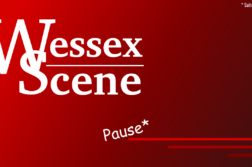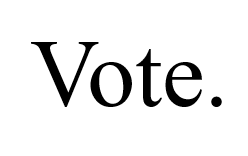So how has our political system changed? Or perhaps another question, has it? Both Rishi Sunak and Kier Starmer have set themselves up as change candidates before the next general election, but what changes are they promising? And what changes have occured since the Tories came into government 13 long years ago.
Sunak called for an end to the ‘30-year political status-quo’, which he committed to by bringing the former Prime Minister back into cabinet. Though, he does have to be cut the tiniest bit of slack. When Sunak took office he was tasked with steadying the sinking ship Liz Truss left him. Now the ship is less chaotic, but what other changes has he thrown into the political waters? Well HS2 has been scrapped, a big but not unsurprising change of direction, and a smoking ban proposed, though its passage into law is not assured.
And Starmer. He is situated on an election footing, but is not proposing major changes. There has been less talk of green energy, or aiming to achieve the fastest growth, instead a promise to unlock building. House building is a surprisingly controversial issue, although it will not be easy, as the Conservatives have been unable to keep a housing minister for even a year. Starmer’s case for change has thus far been to state the difference in the Labour Party from the Corbyn era, and Labour as change from the Tories.
Rather than specific announcements of how either man will use their party to change the country for the better, both leaders are committed to changing the broken political system in the UK. I mean, we all know it isn’t working. Perhaps we have even seen too much change, with Brexit, partygate, war in Europe and the Middle East… We’ve had four prime ministers in seven years, record rates of ministerial turnover, policies picked up then dropped at a whim.
Just look back to when the Tories came into government. Britain saw a major change then, as 2010 heralded the election of a coalition, something that has not been seen before* or since – no I’m not counting the DUP deal in 2017. That changed how our government worked for five years, as there were ministers from two parties, although one held far more power than the other. Fast forward to the Conservative majority of 2015. That brought with it the promise of a referendum, one that got far more publicity than the one on electoral systems in 2011.
*Previous coalitions existed but were not direct results of elections.
Brexit, a new dawn, a change for the UK, freedom from Europe. Emotions ran high back in 2016 and the country voted to leave, well only just. Followed shortly by a Prime Ministerial resignation and a Tory leadership contest – little did we know we would be seeing many more of them -. And Whitehall was forced to reckon with a change they had not planned for, a future where Britain left the European Union. It took years of negotiation, each little incremental change causing ripples within Whitehall leading to tidal waves across communities and industries. Two elections happened whilst we were leaving.
The 2017 election. It was certainly a surprise to many, there had been an election just two years before. The second female prime minister was leading the conservative party into the third election within 10 years. The Tories lost their majority, and young people turned out to vote, but what really changed? The answer was not a great deal, except it saw the Conservative party choose their third prime minister since they took office, and just two years later the country was out at the polls again. Was this too much change?
Boris Johnson, before partygate, was regarded by at least some of the country as a good leader. He certainly looked like a change, a Heieniken politician reaching parts of the country that others couldn’t, and a Tory people wanted to go to the pub with. The election of 2019 showed a changed electorate, the Red Wall crumbling and an 80-seat majority for the Tory party. But Britain was not done changing yet.
Covid struck, our PM almost died, and just as we got out of it, he suffered grave political injury. A Prime Minister, affectionately just known as ‘Boris’ was now reviled, with so many angry, at least in part by what he had done. So his political reputation in tatters, suffering an unprecedented number of ministerial resignations over 48 hours, Boris resigned himself. Oh if only that were the end of it.
The Conservatives tore themselves apart last Summer, exposing to the country how divided they were, and eventually Liz Truss emerged victorious. The third female prime minister, and also the shortest-serving one. The economic situation was already precarious, and she tipped it over the edge. Couple that with the death of our longest-serving monarch and the accession of The King. Well, with her resignation it was certainly a crazy 49 days. So then came Sunak, a managerial type to provide stability to a country that has seen a lot of change.
And whilst the Tories have been in freefall, Labour has changed itself at an unprecedented pace. From an obliterated party under Corbyn in 2019, to one that looks like it could be our next government. Call me cynical, but with an election coming soon, I do not think British politics is done changing yet.




